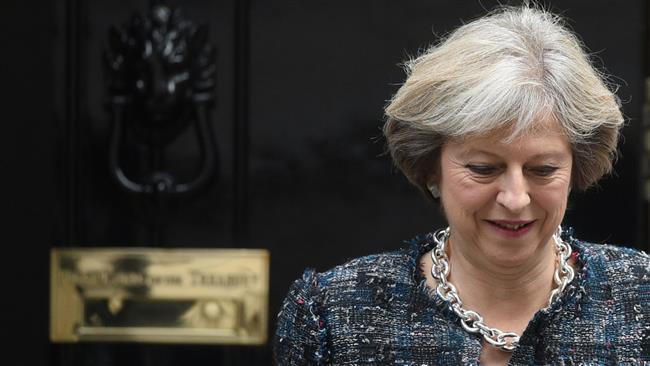UK: Labour leader says Prime Minister May behaving like the 16th century monarch
Labour Party leader Jeremy Corbyn says British Prime Minister Theresa May is behaving like the 16th century English Tudor monarch, Henry VIII, by refusing to commit to putting a final Brexit deal to a vote in the parliament.
Corbyn made the remarks in an interview with The Guardian, published on Thursday, in which he insisted that the prime minister could not be allowed to bypass the parliament over the Britain’s future relationship with Europe.
May has repeatedly refused to commit to a parliamentary vote, saying the lawmakers will have no say in the final Brexit deal.
She told MPs last week that she was focusing on “delivering on the vote of the British people – which is that we will be leaving the European Union.”
Corbyn said the final Brexit deal would have to come to the parliament. “She cannot hide behind Henry VIII and the divine rights of the power of kings on this one.”

He also noted that lawmakers in the European parliament would have a vote on the proposed settlement between Britain and Europe.
“The idea that on something as major as this the prime minister would use the royal prerogative to bypass parliament is extraordinary – I don’t know where she’s coming from,” the Labour leader wondered.
Tasked with taking Britain out of the EU following a referendum in June, May refused at least three times to guarantee that the lawmakers would have a say in a final deal, backtracking on an apparent pledge she had made earlier.
In the referendum held on June 23, nearly 52 percent of British voters, amounting to more than 17 million citizens, opted to leave the EU, a decision that sent shock waves throughout the world.
May has vowed to trigger Article 50 — the step required to officially begin Brexit negotiations, by March next year. Her critics, however, accuses her of having no precise plan to start the negotiations.

Meanwhile, the UK Supreme Court, which has heard a landmark case to decide whether the government can trigger the process of Britain’s exit from the EU without the parliament’s approval, is expected to deliver its judgment before the end of January.
If the court upholds the High Court’s ruling, that could disrupt May’s planned timetable for invoking Article 50 by March and derail the government’s wider Brexit plans.
Once Article 50 is triggered by an EU member state, there is a two-year time limit to complete negotiations. If negotiations fail to reach agreement, the member state leaves the bloc with nothing.
May has said she will give formal notification of Britain’s departure in March — a timetable that was backed overwhelmingly by MPs in the House of Commons earlier this month.
Culled from Presstv




